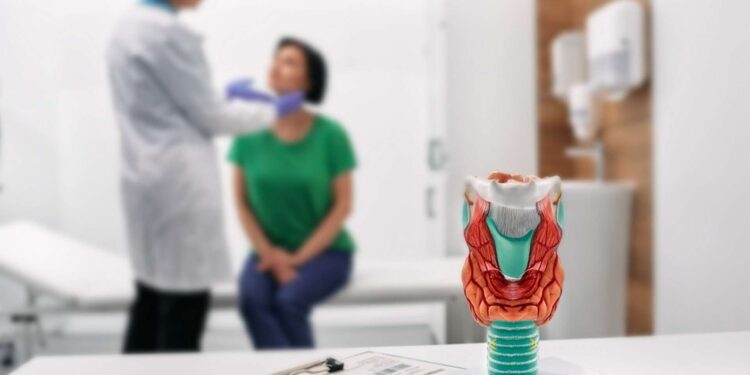The changing diets of Europeans are causing iodine deficiencies, warns the WHO. The abundant supply of plant-based alternatives to dairy products, as well as the consumption of processed foods, pose health risks, particularly to pregnant women and their fetuses. But why does the body need iodine?
A recent report from theWorld Health OrganizationWorld Health Organization pull the doorbelldoorbell alarm about a growing public health problem: a deficiency in iodineiodine in the European region. A situation partly due to the growing popularity of plant-based alternatives to major sources of iodine such as milk and dairy products.
Iodine is a trace elementtrace element involved in the synthesis of thyroid hormones, but also in fetal brain growth. Milk and dairy products are important sources of iodine in many Western and Central European countries, especially for children.
However, a WHO report highlights a decrease in the consumption of dairy products among adolescents and adults. This is cause for concern for the organization. As Dr Hans Henri P. Kluge, WHO Regional Director for Europe, points out: ” The shift towards plant-based dairy alternatives, particularly among women, who are already at higher risk of iodine deficiency and thyroid disease than men, is of concern “.
A salt that is not iodized
Salt, another source of iodine, also appears to be impacted by our changes in diet and lifestyle. Processed products, such as bread, cold cuts and ready meals, are now the main sources of salt in the Western diet, representing 70 to 80% of the total.notes the WHO. However, recent market studies have revealed that the salt used to prepare these products is mostly non-iodized. “.
WHO further calls on individual countries in the European region to impose ” the use of quality iodized salt in processed foods. It is also necessary to ensure that milk and dairy substitutes are appropriately fortified with iodine “.
Recall that an iodine deficiency is associated with an increase in volumevolume of the thyroid with the appearance of a goiter. Furthermore, a deficiency during pregnancy exposes the fetus to risks of brain damage.



